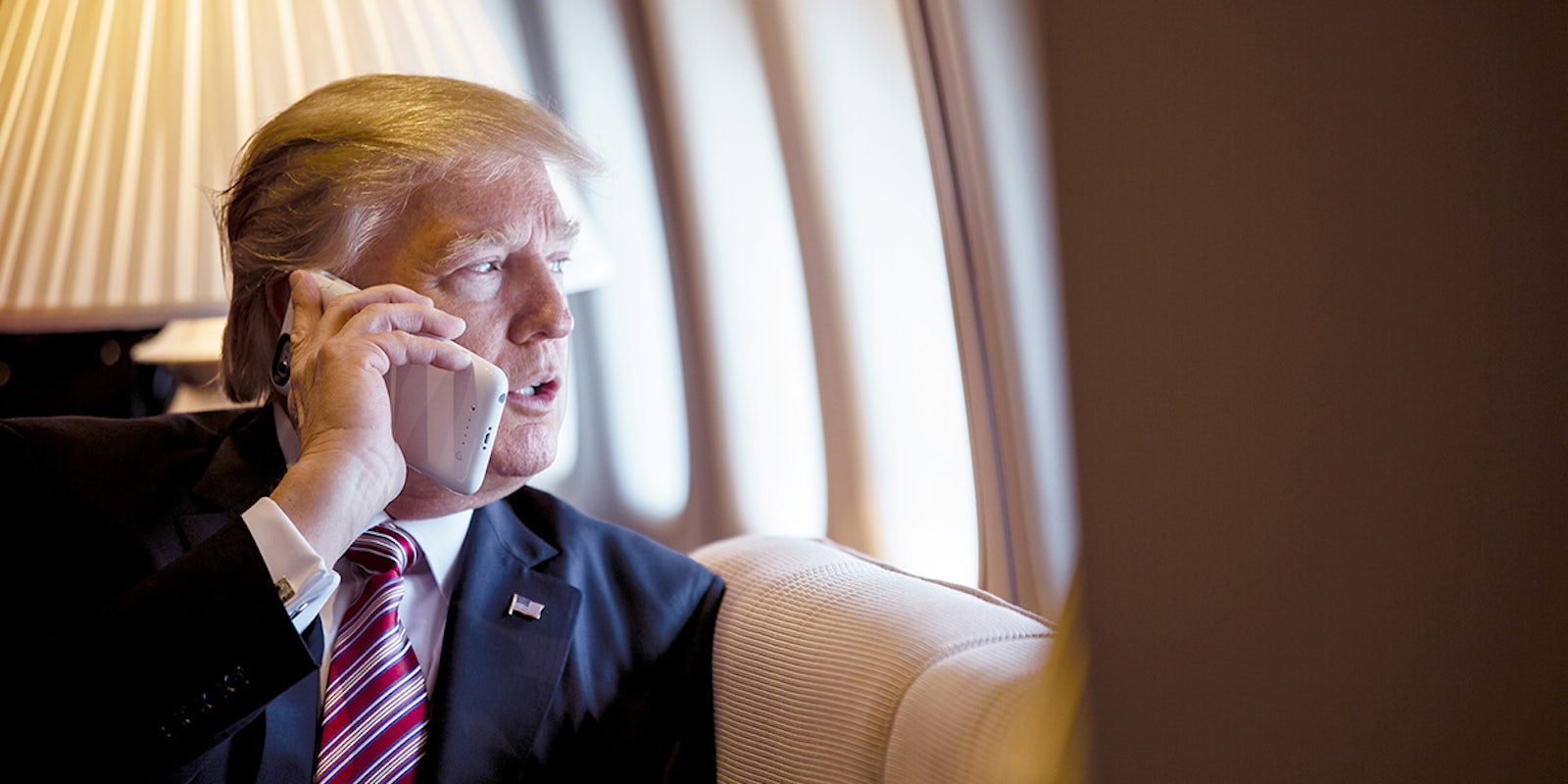President Donald Trump signed an executive order on Thursday that targets social media companies, just a day after he complained about Twitter fact-checking two of his tweets.
The order, according to Vox, threatens social media companies’ legal protections if they don’t comply with being neutral when it comes to political voices. It mentions Twitter 6 times, which is more times than it mentions Facebook and YouTube. It also is being seen as purely symbolic and likely won’t hold up in court.
“Presidents can do anything,” Karen North, a professor of social media at the University of Southern California’s Annenberg School of Communication, told USA Today of the draft. “But there are checks and balances, and whatever he signs is likely to be challenged by Congress and the courts.”
Meanwhile, Kate Klonick, an assistant law professor at St. John’s University, called the order “not enforceable” when speaking with Recode of the draft.
The order aims to direct the Commerce Department to petition the Federal Communications Commission (FCC) to look at Section 230 of the Communications Decency Act, according to the Washington Post.
Section 230 essentially acts as a liability shield for websites, as it does not hold them responsible for what is posted on them by third parties.
The section—which has been hailed as “one of the most valuable tools for protecting freedom of expression and innovation on the internet”—has become a target for lawmakers in recent months.
The order also aims to send complaints about alleged bias against conservatives by social media companies to the Federal Trade Commission (FTC) and reigns in how much federal agencies spend on advertising on social media, the Post reports. The order claims Twitter, along with other platforms, “are engaging in selective censorship that is harming our national discourse.”
The president promised “big action” on Wednesday as he railed against Twitter’s decision to fact-check his tweets about mail-in ballots and a perceived bias by the companies against conservatives.
On Thursday, he signaled that he would be signing the order that same day.
“This will be a Big Day for Social Media and FAIRNESS!,” the president tweeted.
While Trump’s executive order will add to the unrest between Washington, D.C. and tech companies, it’s unclear how much of an immediate impact it will have.
According to Protocol, which had obtained a draft of Trump’s executive order, it essentially argues that social media giants are public squares—an argument Trump pushed against in a lawsuit regarding his ability to block users on social media.
The United States Court of Appeals for the Second Circuit ruled in 2019 that Trump blocking users was unconstitutional, as he used social media as a forum where makes announcements about his administration.
A more recent court decision may also pour cold water on the overarching goal of the order.
As Politico reported, the U.S. Court of Appeals for the D.C. Circuit rejected a lawsuit brought by Laura Loomer, the right-wing provocateur, and Freedom Watch, against tech giants for allegedly suppressing conservative viewpoints and violating the First Amendment.
The court ruled unanimously to dismiss the complaint because “in general, the First Amendment ‘prohibits only governmental abridgment of speech.’”
However, the order setting its sights on Section 230 could have implications—and the section has been a target of politicians on both sides of the aisle recently.
Signal, the popular encrypted messaging app, explained the importance of the section while arguing against the EARN IT Act, a hotly contested bill in Congress that critics fear could pave the way for a back-door into encryption.
The bill would dangle the Section 230 immunity over websites unless they adhere to best practices put together by a commission that theoretically (or likely) could include back doors into encryption.
Without Section 230, Signal and other smaller companies would not be able to “shoulder the enormous financial burden of handling hundreds of new lawsuits if they suddenly became responsible for the random things their users say.”
Meanwhile, Trump’s order reportedly taking aim at the section is already getting criticized by digital rights groups.
“Trump could not be more wrong on the law, the facts, and the scope of his power. Neither independent agencies like the FCC nor other executive-branch agencies like the Department of Commerce have any role to play in implementing, adjudicating, or deciding any matter regarding Section 230,” Free Press Senior Policy Counsel Gaurav Laroia said in a statement. “Section 230 was written to protect free speech on the open internet. Changing Section 230 is Congress’ prerogative, not the president’s by fiat. His poorly written executive order is an embarrassment and would be laughable if it weren’t so dangerous.”
This story has been updated.
READ MORE:
- Zuckerberg criticizes Twitter’s decision to fact-check Trump
- Kellyanne Conway calls on conservatives to attack a Twitter employee
- Twitter fact-checked Trump’s mail-in voting tweet. Now he’s going ballistic
- Signal makes a dire warning about Congress’ EARN IT Act


